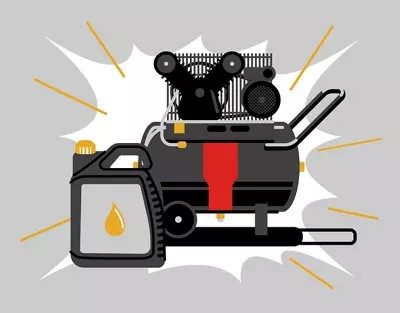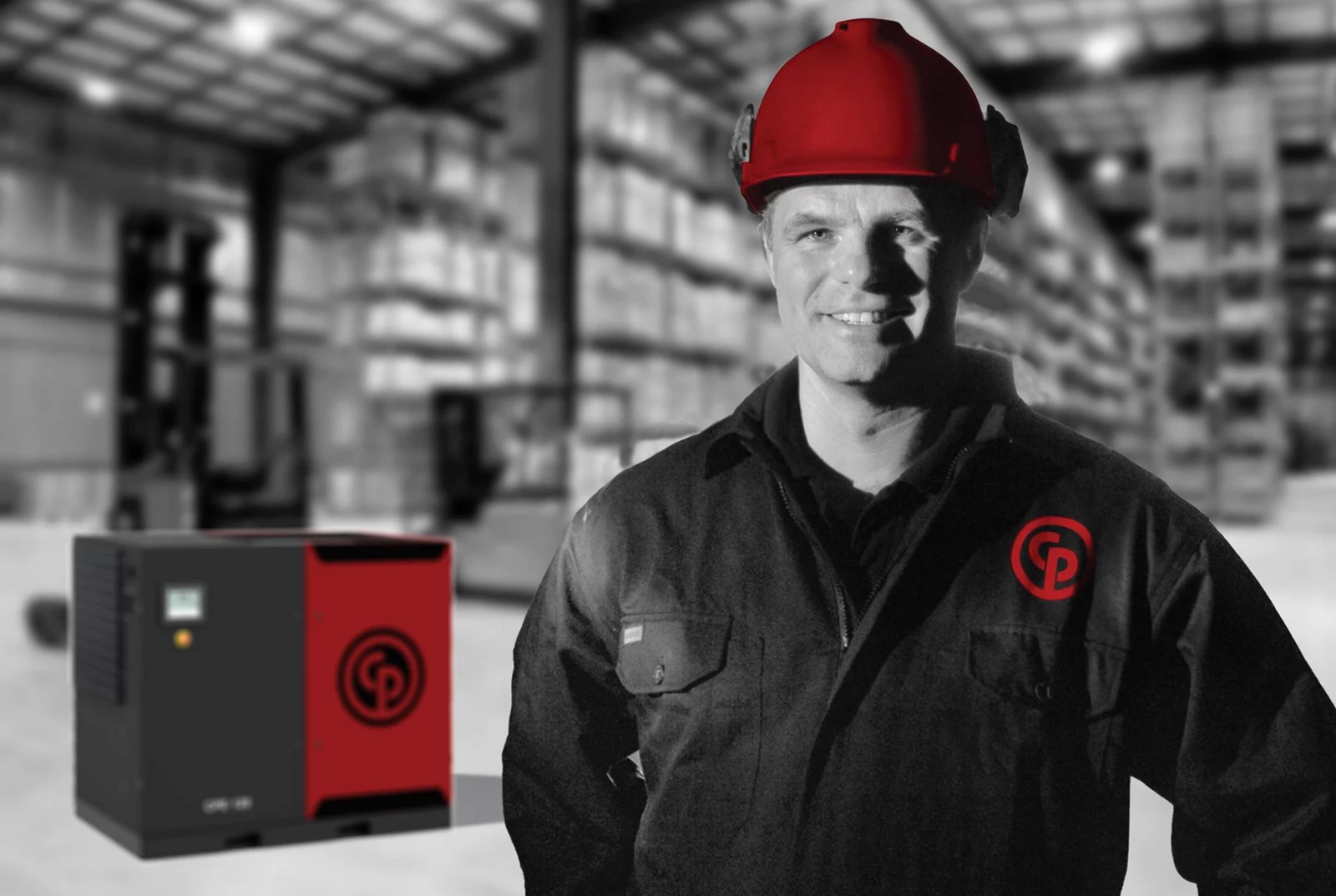Proportioning the Compressed Air Dryer
Trying to figure out which air dryer capacity is best for you? Here are some factors to consider. Read More…
Air compressors require constant oil lubrication to prevent friction on the pistons or screws and other moving parts. To make sure your air compressor is running efficiently, it is important to check your oil level regularly and to know how much oil your compressor needs.
 Before
adding any oil to your air compressor, you want to check your compressor manual for guidelines on checking/adding oil to your unit. The
manual will indicate exactly how much oil you should add into the sump for your model of compressor. Once you have read the manual, you
should be able to locate the oil sight glass on your compressor. It may be found on the base of the pump for reciprocating type
compressors or on the sump tank in a rotary screw compressor. In the middle of the sight glass, you will see a dot. Ideally, you want the
oil level to be in the center of the dot. If the oil level is below the dot, your unit needs more oil. If the oil level is above the dot,
you have added too much oil.
Before
adding any oil to your air compressor, you want to check your compressor manual for guidelines on checking/adding oil to your unit. The
manual will indicate exactly how much oil you should add into the sump for your model of compressor. Once you have read the manual, you
should be able to locate the oil sight glass on your compressor. It may be found on the base of the pump for reciprocating type
compressors or on the sump tank in a rotary screw compressor. In the middle of the sight glass, you will see a dot. Ideally, you want the
oil level to be in the center of the dot. If the oil level is below the dot, your unit needs more oil. If the oil level is above the dot,
you have added too much oil.
This oil sight glass is showing that the oil level is too high.
We often receive calls from customers saying, “My compressor is spitting oil.” or “There is oil coming out of my compressor lines.” Those are both indications that the air compressor was overfilled with lubricant.
Typically when we think of adding/changing oil, we think about the oil in automobiles. When oil is added, it is usually filled near the top, which is why there is a common misconception of having the same practice for air compressors. However, filling your compressors oil sump to the top can cause significant internal damage to your unit. When excess amounts of oil become aerosolized by the compressor’s discharge, it can cause damages not only to your compressor, but to any pneumatic tools and accessories that are hooked up to your compressor. Oily discharge can also ruin your end-product, sometimes to the point where projects must be scrapped and reworked entirely. Any spray painting, sanding or the application of finishes would be ruined by oil entering the airstream.
To keep your air compressor running as efficiently as possible, it is important to make sure it is always operating at the proper oil level. With preventative maintenance, you’ll greatly reduce the risk of having projects ruined by the interference of oil in your compressor’s airstream

Do you have an idea for our #expertcorner? Let
us know!
Ash Air has been around in New Zealand since 1979, and we’ve grown into a nationwide company with international support and a reputation for quality and reliability.We look after all things compressed air for your business!
Ash Air's range of Chicago Pneumatic, Alup, Pneumatech, and Quincy compressors are used extensively around the world in industries ranging from oil and gas to food, automotive and farming, and we bring you these world class compressors here in the land of the long white cloud.Our technicians are compressed air equipment experts and are dedicated to addressing customer needs. Supported by a 13 locations nationwide, Ash Air offers one of the widest selections of compressed air equipment and parts available today in New Zealand.
With Ash Air compressors, you can count on reliability and high performance for even the most demanding applications. We focus our efforts on the following:
Talk to the team today:
Proportioning the Compressed Air Dryer
Trying to figure out which air dryer capacity is best for you? Here are some factors to consider. Read More…
Maintenance budget: 8 factors to consider
Just like any other equipment, a compressed air installation also requires the necessary maintenance work during its entire lifespan. Even though maintenance costs are only about 5 to 10% of a machine's annual operating costs, failure to budget for maintenance can have potentially disastrous consequences. Read More…
The air dyer is one of the most ignored cooler in the system. A dirty condenser will cause water in the lines, or worse it will cause complete dryer failure. Read More…